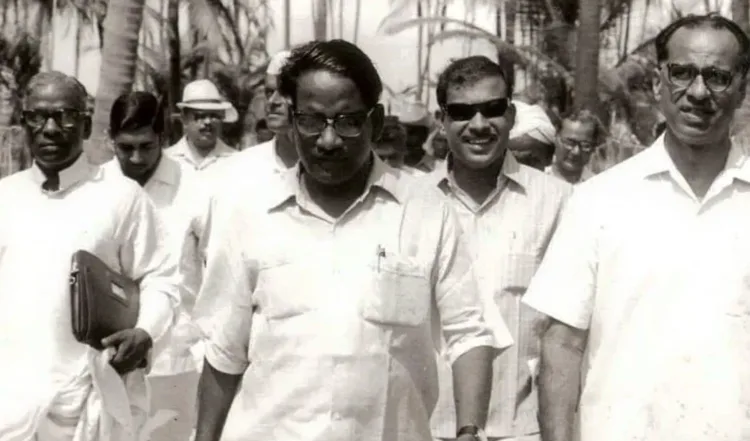NEW DELHI: October 29 marks the birth anniversary of one of the greatest leaders of the tribal community. Born in an ordinary family in Gumla of the then Bihar province (now Jharkhand) under British Raj, Baba Kartik Oraon was one of the few leaders of his time who first felt the pain of tribal community, grappling with the challenge of illegal conversion.
Hailing from the Oraon community itself (one of the most conversion-affected sect of the tribal community) Baba Kartik Oraon soon realised the impact of the conversion on tribal society and vehemently raised his voice against alienation of the tribal society from Hindu identity.
A skilled engineer and a politician of utmost commitment to society, Baba Kartik Oraon represented the Lohardaga Lok Sabha constituency thrice. He also served as a minister of aviation and communication in Indira Gandhi’s government.
On his 100th birth anniversary lets delve into the journey of Baba Kartik Oraon and the efforts made by him to tackle the grave issue of conversion of Hindu tribal community.
- Baba Kartik Oraon was born on October 29, 1924 in a remote village of Kiraunda Littatoli of Gumla. He completed his primary education from Gumla and took admission in Patna Science College for higher studies in 1942.
- He completed his engineering in the year 1948 and was appointed as assistant engineer in Bihar’s irrigation department.
- He went to London in the year 1952 for higher studies and worked there in various project before returning to Bharat in 1961.
- He joined politics and was elected as a Member of Parliament from the Lohardaga Lok Sabha seats in the year 1967.
- He appealed to the then Prime Minister Indira Gandhi to protect the land of the tribals during the Bhoodan movement in 1968. His efforts eventually saved the lands of the tribals which was then being sold at a cheaper price.
- He played an important role in formation of a Joint Parliamentary Committee (JPC) on Scheduled Castes (SC) and Scheduled Tribes (ST) of which he was himself a member of.
- The committee submitted a report in the house in November 1969 in which it recommended that those who have left traditional practices and converted to other religion should not avail the benefits reserved for the tribal community. Though, the recommendation of the committee was not accepted immediately.
- A year later Baba Oraon submitted a memorandum to the then Prime Minister Indira Gandhi to accept the recommendation made by the JPC. The memorandum was signed by 348 parliamentarians. Though a counter memorandum was also submitted by a total of 50 parliamentarians and the recommendation was not accepted eventually.
- In his book “Bees Varsh ki Kali Raat he emphasized that the tribals were Hindus since time immemorial and the rituals followed by tribals and Hindus are not placed in contradiction but are complementary.
- Baba Oraon painted the condition of the tribal community in three broader parts, one before 1950 under the British Raj, secondly under the 20 years of independence and finally the future of the community.
- On the fateful day of December 8, 1981, Baba Kartik Oraon fell on the corridor of parliament house. He was rushed to the Ram Manohar Lohiya hospital where he breathed his last on the same day.



















Comments